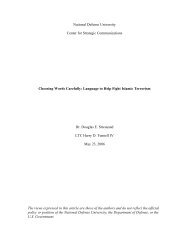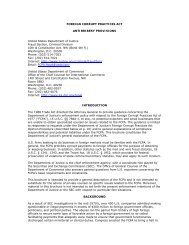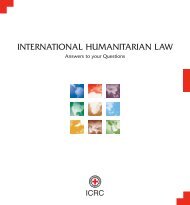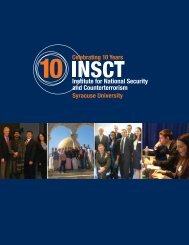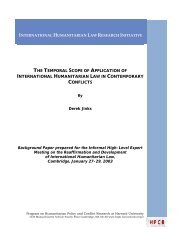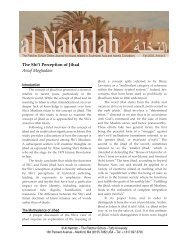some reflection on post-enlightenment qur'anic hermeneutics
some reflection on post-enlightenment qur'anic hermeneutics
some reflection on post-enlightenment qur'anic hermeneutics
You also want an ePaper? Increase the reach of your titles
YUMPU automatically turns print PDFs into web optimized ePapers that Google loves.
Special] Post-Enlightenment Qur’anic Hermeneutics 1435period and by jurists interpreting the Qur’an during the classical periodshaped the applicati<strong>on</strong> of the hajj verses. Jurists will tell us that Allah,when announcing the fact that the Sacred Mosque should be open to all, <strong>on</strong>an equal basis, did not really mean all, but <strong>on</strong>ly free Muslims. 130 It is theexaminati<strong>on</strong> and applicati<strong>on</strong> of the Prophetic ahadith and the acti<strong>on</strong>s of the<strong>post</strong>-Prophetic Caliphs that supply the interpretive authority for the juristicopini<strong>on</strong> that Mecca should remain closed to n<strong>on</strong>-Muslims and that the hajjshould be limited to Muslims <strong>on</strong>ly. The can<strong>on</strong>ical tafsir that interpret theQur’anic pr<strong>on</strong>ouncements <strong>on</strong> the hajj incorporate these traditi<strong>on</strong>s into theannounced understanding of the meaning of the verses, even though there isplain language that would perhaps lead to other c<strong>on</strong>clusi<strong>on</strong>s. Further, thetraditi<strong>on</strong> relied <strong>on</strong> in the tafsir are not all Prophetic, but rather the result ofCaliphal edicts issued after the death of the Prophet. 131A universalistic Post-Enlightenment stance might therefore cause ac<strong>on</strong>temporary interpreter to eschew these traditi<strong>on</strong>s as not supported by themandate of the texts. Ordinary linguistic and philological methods of interpretati<strong>on</strong>of those texts may lead the c<strong>on</strong>temporary interpreter to reject thecan<strong>on</strong>ical tafsir and c<strong>on</strong>clude that Mecca should be again opened to n<strong>on</strong>-Muslims and that perhaps the hajj should be an event open to all as well. Inmy view, Post-Enlightenment Qur’anic hermeneutical theory may not supportsuch an interpretati<strong>on</strong>. That is because the hermeneutic has neverasked the interpreter to completely discount the traditi<strong>on</strong>s that supply meaningto the text. What is required instead is a rigorous historical analysis ofthe c<strong>on</strong>diti<strong>on</strong>s and circumstances that led to the implementati<strong>on</strong> of the traditi<strong>on</strong>as a determinant of the c<strong>on</strong>temporary understanding. Professor FazlurRahman described this process as the first movement of a “double movement”process of interpretati<strong>on</strong>, <strong>on</strong>e that moves from “the present situati<strong>on</strong>to Qur’anic times, then back to the present.” 132Although this method takes full account of the traditi<strong>on</strong>s involved ininterpreting the text, it is radically different from the approach followed bythe can<strong>on</strong>ical tafsir. The can<strong>on</strong>ical tafsir is essentially a species of romantic<strong>hermeneutics</strong>, that is, a <strong>hermeneutics</strong> that determines the meaning of the textsolely by rec<strong>on</strong>structing the original c<strong>on</strong>diti<strong>on</strong>s that surrounded the producti<strong>on</strong>of the text. 133 The can<strong>on</strong>ical tafsir does employ philological, grammatical,and syntactical reas<strong>on</strong>ing in interpreting the text, but all of these meth-130. Id.131. See PETERS, supra note 126, at 60-69 for descripti<strong>on</strong>s of these edicts, many ofwhich were issued by Abu Bakr and ‘Umar.132. RAHMAN, ISLAM AND MODERNITY, supra note 2, at 5.133. See Hans-Georg Gadamer, The Historicity of Understanding, in THEHERMENEUTICS READER: TEXTS OF THE GERMAN TRADITION FROM THE ENLIGHTENMENT TOTHE PRESENT 256, 258 (Kurt Mueller-Vollmer ed., 1985) (describing the romantic enterpriseas “the tendency to rec<strong>on</strong>struct the old because it is old”).



